If you love to camp and want your baby to have the best time you can provide for them, there are seven factors to consider before making the trip to your favorite campground. Factors like location, feeding, sleeping, clothing, protection, and extra gear should be thought about carefully when planning your camping trip. Here is the ultimate guide to camping with a baby.
Location
If you are considering going camping, think about where you want to camp. Is there a specific place you’ve always visited, or are your options more open? Think about the following location information when choosing a campground.
Weather
Are you camping somewhere that has extreme temperatures? Does it get really hot during the day or very cold at night?
Understanding the weather can allow you to plan ahead, and you might consider going camping at a different time of the year if the weather could be too extreme for your baby.
Terrain
What is the terrain like, and do you plan to explore, hike, or take walks around the campground or on nearby trails?
Depending on the age and individual, your baby may love or hate moving around outdoors. If you like to take walks or hike, see how your baby does on an outdoor walk, and make sure you can handle carrying your baby for some time. It can be beneficial to have a family member or friend who can carry the backpack or other items so you can focus on the care of your baby.
Car ride length
How far away is the campground?
If it will take you all day or longer to drive to camp, consider how many breaks you will need to feed your baby, change their diaper, put down for a nap, take a walk, or hold them when they cry or get uncomfortable. In the very early years, it may be wise to stick to a campground that is closer to home.
Feeding
One of the most critical parts of your camping trip will be making sure your baby is fed and hydrated.
Bring extra food
While you don’t need to pack every square inch of your car with food, it can be beneficial to pack a few additional days of food for your baby. If your baby is primarily breastfed, that can make feeding simple.
If your baby is already eating solid food, bring enough snacks that won’t go bad or spoil during your trip. While you can bring fresh fruit and other perishable items, consider the fact that these might go bad after some time. Knowing where the nearest grocery store or food mart is can be helpful.
What about formula?
If your baby takes formula that needs to be heated up, make sure you bring enough bottles to ensure you always have a clean bottle for your baby.
Bringing a miniature propane stove and extra propane gas can ensure that you always have enough heat to warm your baby bottles.
Stay hydrated
Especially in hot climates, you want to make sure you bring enough bottled water that can last you your entire trip. You will be moving about or even lounging under the hot sun, and you might find yourself consuming more water than usual. Make sure you keep your baby hydrated.
Sleeping
Bedtime can be a challenge even in your home environment, so how do you keep your baby sound asleep in the great outdoors? When you plan your camping trip, make sure you have planned out the sleeping arrangements.
Bring a large tent
If you have been camping enough times, you will know that getting a tent that sleeps one or two more people than you plan to have in the tent can be useful. If it is two adults and one baby, you more than likely can manage with a four-person tent. However, it can be useful to get a six-person tent to give all the room you need inside for diaper changing and extra space for your belongings and items for the baby.
Portable cribs
Your baby is more than likely not old enough to sleep under a blanket, in a sleeping bag, or on an air mattress. Because you can’t take the whole crib with you, investing in a portable crib is a wise choice.
You want to ensure that your baby is comfortable throughout the night, so introducing them to the portable crib before your trip can also get them used to their temporary sleeping area.
Clothing
What you wear is crucial to staying comfortable as you enjoy the campground, and it can be even more critical for your baby. Think about the weather forecast as well as the activities you plan to do while you are there.
Bring extra clothes
You never know how many clothes you are going to go through when you camp, and your baby is no different. Whether it rains, your baby gets their clothes dirty, or you just go through more clothes than you thought were needed, having extra sets of clothes is wise.
Even if the forecast doesn’t say it will rain, or be hot, or be anything other than what you believe it will be, it doesn’t take up that much more room to bring a variety of clothing. Pack a baby rain jacket, sleeping clothes, and clothing for both warm and cold weather.
Bring warm clothes
Even hot climates can get cold at night, and your baby could use some warm clothing. This goes especially for infants who aren’t yet supposed to sleep with blankets or pillows in their crib. Having both thin and thick onesies and other clothing can make sure your baby is prepared for whatever mother nature brings their way.
Extra diapers are a must!
Don’t underestimate your diaper supply on your camping trip, as this can result in a long drive for emergency diapers. If you estimate you’ll need twenty diapers for your entire trip, bring forty. You never know how your baby will react to this new environment, and they may go to the bathroom more often than usual.
Protection
Being prepared can be beneficial to staying protected in what might be unknown territory. Whether you are camping in a more modern environment or the middle of the wilderness, consider the following preparations.
Bug spray
While you should keep your baby protected from mosquitos and other bugs, the CDC recommends not using mosquito repellant, especially sprays that contain DEET, on infants less than 2 months old. The CDC also recommends not to use products containing oil of lemon eucalyptus (OLE) or para-menthane-diol (PMD) on any children under 3 years old.
Certain bug sprays are natural, DEET-free, and claim to be safe for children and babies of any age. If you do plan to use bug spray on your baby, make sure you spray your hand and apply it to their face to avoid applying insect repellant to their hands, eyes, mouth, irritated skin, or cuts.
Baby bug suit
If you want to avoid bug spray altogether, consider investing in a baby bug suit. Not only are these super cute, but they also protect your baby from all sorts of bugs, including mosquitos, other bug bites, bee and wasp stings, and more. Similar to our tip about the portable crib, it can be beneficial to introduce your baby to their bug suit before the camping trip to make sure they feel comfortable in it.
Another thing you can do to prevent bug bites and bee stings is bringing baby clothing that covers most of their skin. You can put a onesie or a thin long sleeve shirt and pants on your baby to cover their skin from possible bugs.
Baby sunscreen
The FDA recommends not to use sunscreen on infants younger than 6 months, so it is wise to consult your pediatrician to find out what kind of sun protection you can provide for your baby.
For very young infants, do your best to keep them in the shade as much as you can. If you plan to take a walk in the sun, a small umbrella that blocks UV rays can be all that you need to protect your baby’s skin from burning.
First aid kit and other safety measures
A first aid kit is a wise choice whether or not you have a baby, so make sure you have one handy and close by. A first aid kit can help provide protection to your baby for bug bites, bee stings, cuts, and other needed first aid.
While many never like to assume the worst, do you know where the nearest hospital is if you or your baby needed it? Plan ahead by saving the phone number and address for the hospital. In the case that you lose cell phone reception or location data, having hand-written or printed directions can be useful in some situations.
Do you know how to do baby CPR? Consider learning how to perform CPR on infants or make sure someone in your group knows how.
Extra gear
Do you think you are prepared enough? Do you want some extra gear for your trip? While all your baby needs are warm clothes, food, water, and protection, think about bringing some additional items if you have the room.
Be minimal, but not too minimal
As we’ve stated before, you don’t need to pack the entire car simply to have a packed car. You can live minimally when you camp, but don’t be too minimal. Consider the tips that we mentioned in this article to guide and prepare you for what you might need. While you don’t need every gadget or modern piece of baby camping gear, having at least a little bit more than the necessities on hand can be useful.
Keep mom comfortable
Whether mom or dad takes care of the baby the most, it can be beneficial for parents to keep themselves comfortable on their trip. Camping should be fun and relaxing, and bringing some items that will keep you comfortable is important.
Bring one or more extra-comfy camp chairs, and maybe even some seating pads for when mom needs to nurse or sit and hold the baby. Portable fans can do wonders in hot climates, and thick blankets can be the best choice you can make for cold nights.
Anything you can do to lighten the load on mom and dad should be added to the list. Your camping trip should be just as comfortable for you as it is for your baby.
Baby toys
Many babies won’t just be able to enjoy the great outdoors as-is, and they will need some form of entertainment besides scenic views and fresh air.
Bring a box of a variety of toys and stuffed animals that can keep your baby entertained throughout the day. If your baby enjoys particular toys, bring them with you. You don’t know how your baby will react to this new environment, and it can be very different and even frightening at times to be in a brand-new place. Having their favorite toys can make sure they remain comfortable and entertained when the great outdoors isn’t enough.
Baby play area
A portable crib might be enough for very young infants, but if your baby is already crawling around the house, you want to make sure they are able to explore their new surroundings while still keeping them safe.
Having a baby play area can ensure their safety when they want to crawl, explore, or play with toys. Depending on the age of your baby, you can bring a playpen the size of a crib, a larger foldable playpen, or even a fold-out metal play area that gives them more room to crawl and explore.
Conclusion
Whether you pack light or have all the latest gear and gadgets, camping with a baby can be an enjoyable experience that will remain in their memory forever. While you don’t need to prepare for everything that could happen, the most important thing is to keep your baby fed, hydrated, and safe. Enjoy your camping trip!

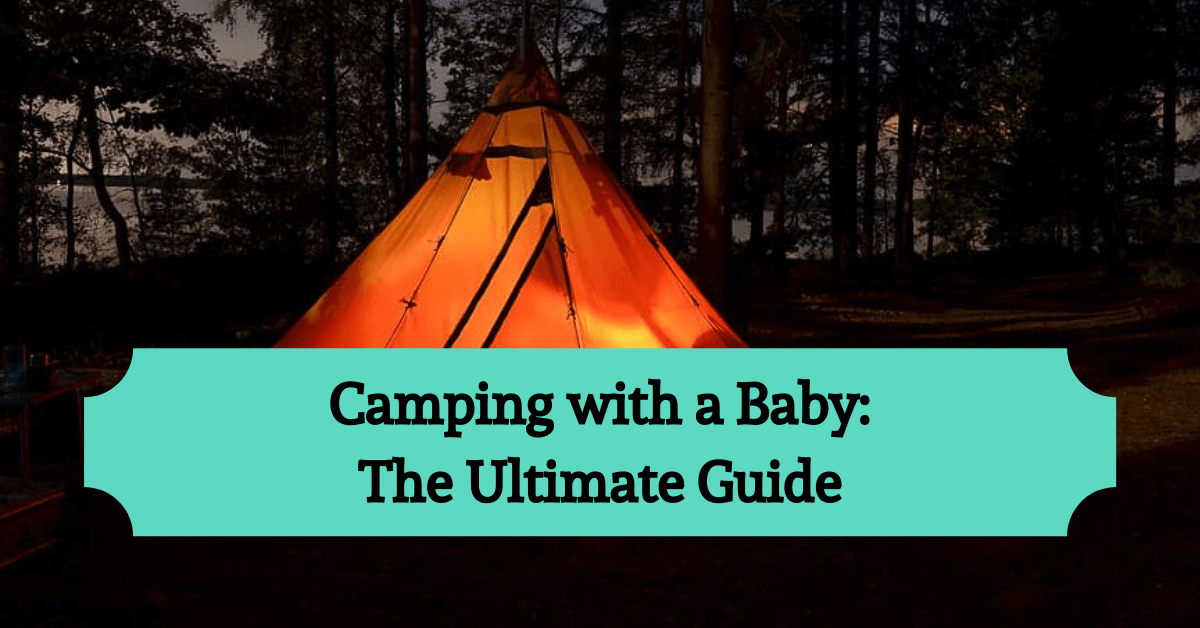
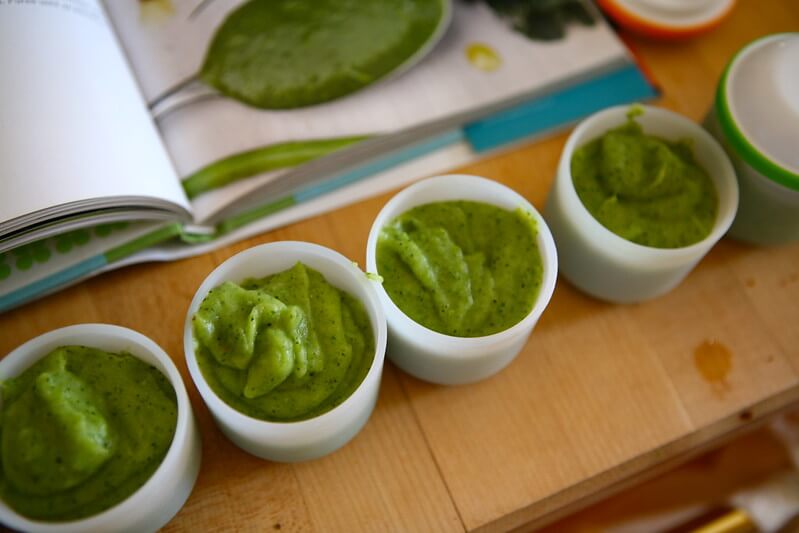


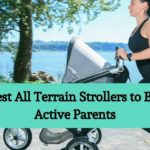


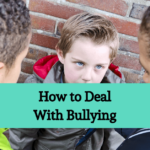

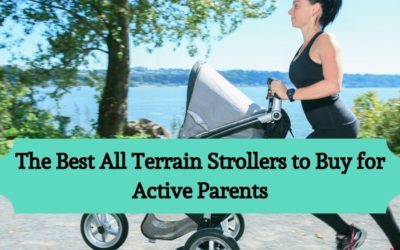

0 Comments